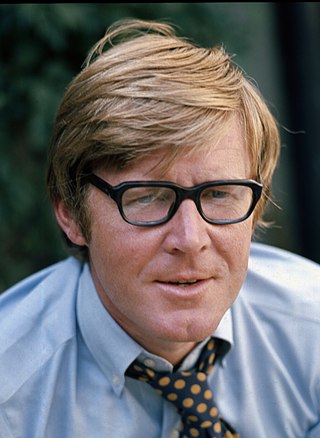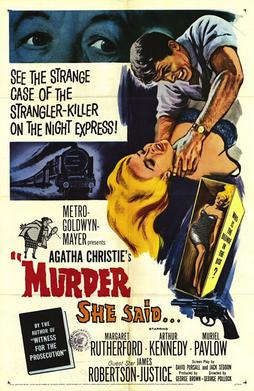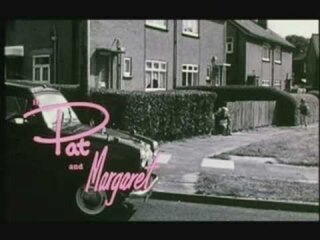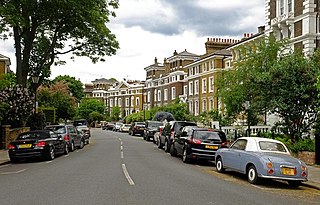
Harriet Tubman was an American abolitionist and social activist. After escaping slavery, Tubman made some 13 missions to rescue approximately 70 enslaved people, including her family and friends, using the network of antislavery activists and safe houses known collectively as the Underground Railroad. During the American Civil War, she served as an armed scout and spy for the Union Army. In her later years, Tubman was an activist in the movement for women's suffrage.

Alan Bennett is an English playwright, author, actor and screenwriter. Over his entertainment career he has received numerous awards and honours including two BAFTA Awards, four Laurence Olivier Awards, and two Tony Awards. He also earned an Academy Award nomination for his film The Madness of King George (1994). In 2005 he received the Society of London Theatre Special Award.

Calendar Girls is a 2003 British comedy film directed by Nigel Cole. Produced by Touchstone Pictures, it features a screenplay by Tim Firth and Juliette Towhidi, based on a true story of a group of middle-aged Yorkshire women who produced a nude calendar to raise money for Leukaemia Research under the auspices of the Women's Institutes in April 1999 after the husband of one of their members dies from cancer. The film stars an ensemble cast headed by Helen Mirren and Julie Walters, with Linda Bassett, Annette Crosbie, Celia Imrie, Penelope Wilton, Geraldine James, Harriet Thorpe and Philip Glenister playing key supporting roles.

Talking Heads is a 1988 TV series of dramatic monologues written for BBC television by British playwright Alan Bennett. The first series was broadcast on BBC1 in 1988, and adapted for radio on BBC Radio 4 in 1991. A second series was broadcast on BBC Two in 1998. They have since been included on the A-level and GCSE English Literature syllabus. Some episodes aired on PBS in the United States as part of its Masterpiece Theatre programme.

Dame Margaret Isabel Cole was an English socialist politician, writer and poet. She wrote several detective stories jointly with her husband, G. D. H. Cole. She went on to hold important posts in London government after the Second World War.

Patricia Stephanie Cole is an English stage, television, radio and film actress, known for high-profile roles in shows such as Tenko (1981–1985), Open All Hours (1982–1985), A Bit of a Do (1989), Waiting for God (1990–1994), Keeping Mum (1997–1998), Doc Martin (2004–2009), Cabin Pressure (2008–2014), Still Open All Hours (2013–2019), Man Down (2014–2017) and as Sylvia Goodwin in ITV soap opera Coronation Street (2011–2013).
Up in Town is a six-part series of short (10-minute) monologues, featuring Joanna Lumley as the middle-aged, divorced and lonely Madison Blakelock. The series was produced for television by Baby Cow Productions, and screened on BBC Two. It has subsequently been released on DVD.
Victoria Elizabeth Coren Mitchell is a British writer, TV presenter and professional poker player. She writes weekly columns for The Daily Telegraph and has hosted the BBC television quiz show Only Connect since 2008.

Oxford High School is a private day school for girls in Oxford, England. It was founded by the Girls' Day School Trust in 1875, making it the city's oldest girls' school.

Murder She said is a 1961 comedy/murder mystery film directed by George Pollock, based on the 1957 novel 4.50 from Paddington by Agatha Christie. The production stars Margaret Rutherford as Miss Marple, along with Arthur Kennedy, Muriel Pavlow, James Robertson Justice, and Stringer Davis.

Pat and Margaret is a British television film written by comedian Victoria Wood. The story follows sisters Margaret, a cook, and Pat, a successful actress in the United States, after they are reunited on a television programme after spending 27 years apart. It stars Wood and her frequent comedy partner Julie Walters in the title roles, and features other past collaborators of Wood, including Thora Hird, Celia Imrie and Duncan Preston. First aired in 1994 on BBC One, the film was directed by Gavin Millar and produced by Ruth Caleb.

Stephanie Hope Flanders is a British economist and journalist, currently the head of Bloomberg News Economics. She was previously chief market strategist for Britain and Europe for J.P. Morgan Asset Management, and before that was the BBC News economics editor for five years. Flanders is the daughter of British actor and comic singer Michael Flanders and disability campaigner Claudia Cockburn.
"A Cream Cracker Under The Settee" is a dramatic monologue written by Alan Bennett in 1987 for television, as part of his Talking Heads series for the BBC. The series became very popular, moving onto BBC Radio, international theatre, becoming one of the best-selling audio book releases of all time and included as part of both the A-level and GCSE English syllabus. It was the sixth and final episode of the first series of Talking Heads.

Fortunes of War is a 1987 BBC television adaptation of Olivia Manning's cycle of novels Fortunes of War. It stars Kenneth Branagh as Guy Pringle, lecturer in English Literature in Bucharest during the early part of the Second World War, and Emma Thompson as his wife Harriet. Kenneth Branagh and Emma Thompson met filming the TV series and married in real life. Other cast members included Ronald Pickup, Robert Stephens, Alan Bennett, Philip Madoc and Rupert Graves.
"Her Big Chance" is a dramatic monologue written by Alan Bennett as part of his Talking Heads series for the BBC. The series became very popular, moving onto BBC Radio and international theatre, as well as becoming one of the best-selling audio book releases of all time and being included as part of both the A-level and GCSE English syllabus. It was the fifth episode of the first series of Talking Heads, and originally aired on 17 May 1988.
"Bed Among the Lentils" is a dramatic monologue written by Alan Bennett in 1987 for television, as part of his Talking Heads series for the BBC. The series became very popular, moving onto BBC Radio, international theatre, becoming one of the best-selling audio book releases of all time and included as part of both the A-level and GCSE English syllabus. It was the third episode of the first series of Talking Heads.
"A Lady of Letters" is a dramatic monologue written by Alan Bennett in 1987 for television, as part of his Talking Heads series for the BBC. The series became very popular, moving onto BBC Radio, international theatre, becoming one of the best-selling audio book releases of all time and included as part of both the A-level and GCSE English syllabus. It was the second episode of the first series of Talking Heads.
Talking Heads is a stage adaptation of the BBC series of the same title created by Alan Bennett. It consists of six monologues presented in alternating programmes of three each.

Last Tango in Halifax is a British comedy-drama series that began broadcasting on BBC One on 20 November 2012 until its final episode which was broadcast on 15 March 2020. The series stars Derek Jacobi and Anne Reid as Alan and Celia.

Gloucester Crescent is an 1840s Victorian residential crescent in Camden Town in London which from the early 1960s gained a bohemian reputation as “the trendiest street in London” and "Britain's cleverest street" when it became home for many British writers, artists and intellectuals including Jonathan Miller, George Melly, Alan Bennett and Alice Thomas Ellis.












